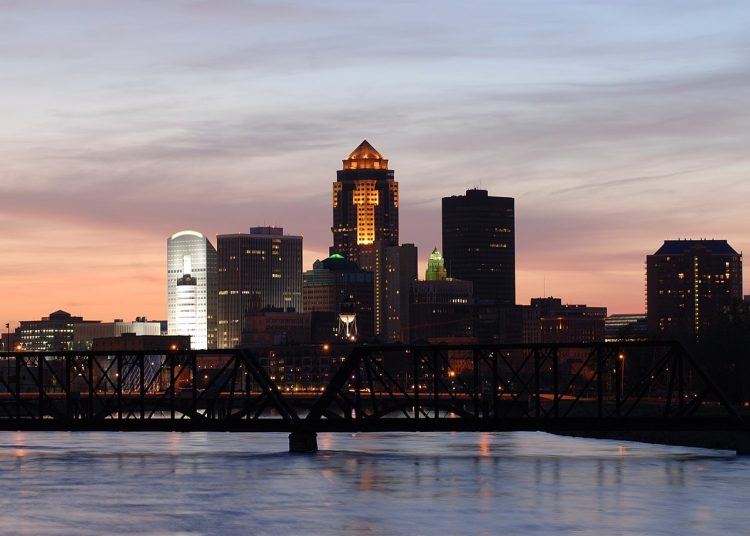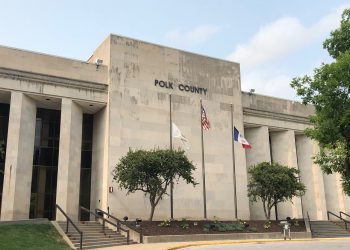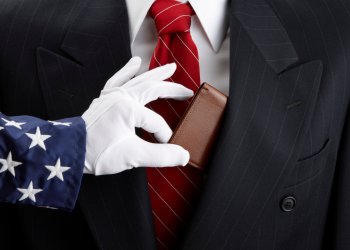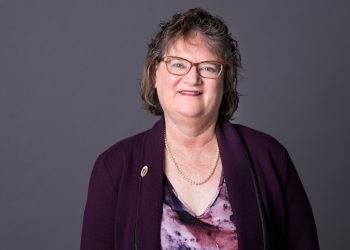(The Center Square) – Polk County officials have major plans for a variety of expensive water-related projects. Those projects include water trails, recreational opportunities, parks, improvements in water quality, and flood prevention systems.
Polk County supervisors approved Tuesday morning a bond referendum to fund those initiatives. Voters will decide its fate in November.
The board voted 5-0 to say yes to offering the $65 million bond to be paid back over 20 years. Public comments were allowed, but no one spoke, the board’s executive assistant told The Center Square.
The advantages of improved infrastructure have an obvious appeal to the public. After all, who does not want more recreation, healthier water, and a reduced risk of floods?
But critics say that infrastructure can be built without the added debt of government bonds.
Chris Edwards, Director of Tax Policy Studies at the Cato Institute in Washington, DC, told The Center Square: “Bonds are taxes, delayed taxes. Budgets will be able to spend less on future needs because of the interest that has to be paid.”
So what are bonds? Investorwords.com defines a bond as a “debt instrument issued by government agencies or corporations to raise money. The issuer must pay a fixed amount each year until the certificate of debt reaches its predetermined maturity date.”
Investors like government bonds, such as the potential Polk County offering, because they are likely to get their money plus interest. The famous junk bonds that worsened the 2009 financial crisis were private corporate bonds.
So how will the 20-year bond be paid off? Property taxes will need to rise. However, a 2019 Des Moines Register poll found that 55% of Iowans thought property taxes were too high.
But opposing the bond in November faces a high bar. Bond issues generally pass by a 3-1 margin.
Edwards said voters generally do not realize that bonds are tax hikes. When voters get to vote directly on tax increases for themselves, they usually turn them down.
Polk County Supervisors Chair Angela Connolly told the Des Moines Register that the COVID experience will help people see the advantages of the bond issue.
“If we learned anything during COVID, it’s that people love to be outside,” she said.
Politicians love bond issues, Edwards said, because it looks like free money for favorite activities like recreation and institutions like schools. And hardly anyone sees that they are raising taxes with voter approval.
“I see no advantage to fund most infrastructure with bonds,” Edwards told The Center Square. “Just pay what it takes up front, $60 million or whatever. It’s more transparent.”
Having government pay up front, he said, definitely saves taxpayers money. But pay-as-you-go would require better planning by government officials.
He suggested an even better outcome would be for government to clear bureaucratic hurdles for private enterprise to spend their own money to build and run such recreation facilities.
That way recreation outlets would be ones the public really wants and is willing to pay for.
In commentary for the Inside Sources news site, Edwards asserted: “Bond financing is appropriate for major infrastructure projects that rely on user charges to pay back the debt over time. But what does not make sense are the general obligation bonds placed on ballots that impose burdens on taxpayers for items such as schools and parks.”
For instance, incoming funds for schools are predictable based on expected student numbers and government funding consistency. As a result, pay-as-you-go would work better in those situations, Edwards said.
In other Iowa bond news, Washington Community Schools is considering a $25 million middle school project. The school board is awaiting enough citizen signatures to proceed, according to the Southeast Iowa Union online newspaper.
And the Dubuque County Conservation Board is proposing that the county’s supervisors put a $40 million bond measure on the ballot.
The plan involves upgrades to local parks and recreational areas, as reported by KCRG-TV in Cedar Rapids.
Local officials also referred to COVID as justification for the use of bonds. They say the pandemic elicited double or triple usage of outdoor facilities.
For accountability, Edwards said citizens need to put good questions to their boards of supervisors, “If I lived in that county, I would ask: Has the board of supervisors done their homework on how the bond would impact private businesses, what additional interest would be due, and what the final total cost would be?”
That transparency, he said, will help taxpayers insure they get their money’s worth and politicians act more responsively.















